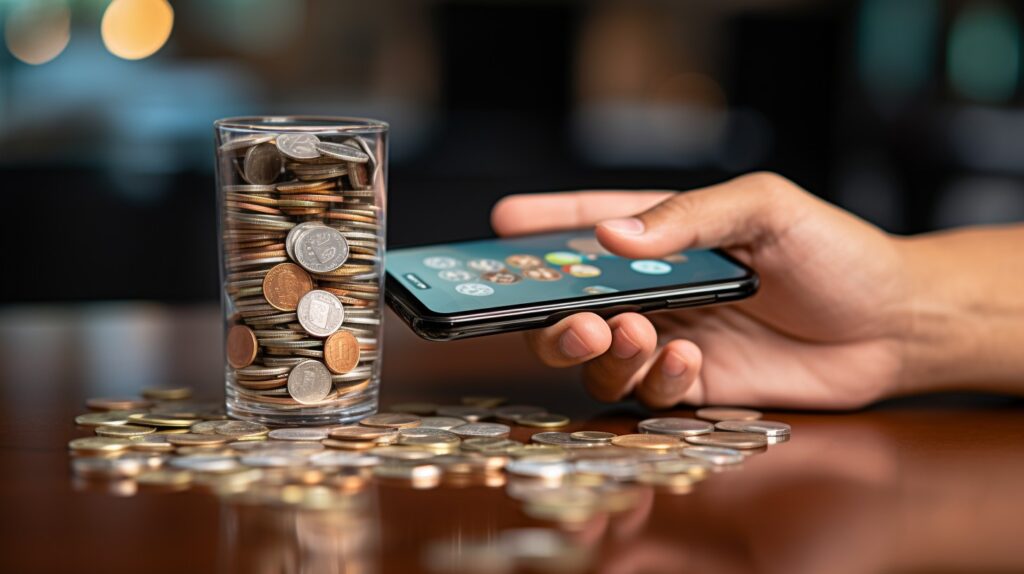Essential Budgeting Tools for Effective Personal Finance Planning

Hey there! If you’re reading this, chances are you’re ready to get serious about your personal finances—good for you! Whether you’re saving for a dream vacation, tackling debt, or just trying to figure out where all your money goes (seriously, where does it go?), having the right tools can make all the difference.
Let’s dive into some budgeting tools that’ll help you take control of your finances without sucking all the fun out of life. Don’t worry—we’ll keep it simple and maybe even add a chuckle or two!
1. Banking Tools: Your Everyday Sidekick
Let’s start with the basics: your banking tools. Most banks offer handy features like online banking and mobile apps that let you keep an eye on your account balances and transactions. Some even have automatic budgeting features built in. Use these to set up alerts (like a nudge when you’re dangerously close to overspending on lattes). Think of it as your very own financial bodyguard.
If your bank doesn’t have these tools, it might be time to say adios and find one that does. Because let’s be honest, nobody wants to walk into a branch every time they need to check their balance.
2. Budgeting Apps: Track Spending on the Go
Apps like Mint, YNAB (You Need a Budget), and EveryDollar make budgeting feel less like a chore and more like… well, a fun little game. Okay, maybe not fun, but definitely helpful. These apps connect directly to your accounts and automatically categorize your spending, so you can see how much you’re splurging on coffee versus groceries.
Bonus: many of them are free, and they’ll send you little reminders to stay on track. It’s like having a tiny financial coach in your pocket—without the yelling!

3. Budgeting Excel Sheet: The Classic Approach
If you’re a fan of keeping it old school, a good budgeting Excel sheet can work wonders. It’s completely customizable, meaning you can add all your quirky categories (like “dog treats” or “impulse online shopping”). Plus, it gives you full control over your numbers, letting you see every penny.
You can either create your own from scratch or download a pre-made template online. Pro tip: color-code your expenses. Nothing says “I’ve got my life together” like a perfectly highlighted Excel sheet.
4. Debt Repayment Calculators: Crush Your Debt
Got some debt you’re trying to tackle? Enter the debt repayment calculator, your new best friend. These tools help you figure out how long it’ll take to pay off your loans or credit card balances based on your payments and interest rates.
It’s like having a magic window into your financial future—except instead of a fortune teller, it’s math (which is actually much better). Watching your debt shrink on these calculators is super satisfying—almost as satisfying as paying it off entirely.
5. Envelope System: Cash is King
Ah, the envelope system—an old-school but effective budgeting method. Here’s how it works: you put your budgeted cash into separate envelopes for things like groceries, entertainment, and “oops, I deserve this” purchases. Once the cash in an envelope is gone, that’s it. No cheating!
It’s simple, visual, and forces you to really think before you spend. Plus, it gives you that satisfying feeling of holding physical money in your hands. Just be prepared for some funny looks when you whip out an envelope of cash at the grocery store.

6. Expense Trackers: Know Where Every Dollar Goes
For the detail-oriented (or the financially curious), expense trackers are an excellent way to log every dollar spent. Apps like Spendee or PocketGuard allow you to input your daily expenses, breaking them down into neat little categories. It’s great for figuring out where you might be overspending or finding areas where you can cut back.
And hey, it’s also an excuse to collect receipts without looking like a hoarder!
7. Financial Advisors: The Expert Approach
Sometimes, it’s worth getting professional help. A financial advisor can provide personalized advice based on your income, expenses, and long-term goals. They’ll help you build a financial plan and even make investments for you (if that’s your thing).
Think of them as the personal trainer for your wallet. They won’t judge your spending habits, but they might help you get them in shape. Pro tip: Find one you trust, because this relationship is all about teamwork.

8. Financial Health: Track Your Overall Progress
Budgeting isn’t just about managing money day-to-day—it’s about keeping an eye on your overall financial health. There are tools that track your net worth, assess your spending habits, and show your financial progress over time.
Apps like Personal Capital let you see how much you’re saving, investing, and (hopefully) growing your wealth. Think of it as your annual check-up, but for your wallet instead of your body.
9. Financial Planning Software: The Big Picture
For those serious about long-term goals, financial planning software like Quicken or Moneydance can help. These tools are great for tracking everything from daily spending to investments, giving you a big-picture view of your financial future.
It’s like having a GPS for your money—setting you on the right path to meet those long-term goals, like buying a house or finally taking that dream vacation (yes, please!).
10. Savings Goal Trackers: Watch Your Savings Grow
Set a goal, track it, and watch your savings grow with savings goal trackers. Whether you’re saving for a trip, an emergency fund, or that shiny new gadget you can’t stop thinking about, these tools help you stay focused.
There’s something oddly motivating about seeing a little bar fill up as you reach your goal. It’s like your money is cheering you on, one dollar at a time.
11. Tiller Money Tracker: For Spreadsheet Lovers
If you love the idea of spreadsheets but also want some automation, Tiller Money might just be your perfect match. It connects to your bank accounts and automatically updates your Excel or Google Sheets with your latest transactions. You get all the customization of a spreadsheet without having to manually input every single transaction. It’s like magic, but with more formulas.
Final Thoughts: Budgeting Made Simple (and Fun!)
Budgeting might not sound exciting, but with the right tools, it can actually be… dare I say it… fun? Whether you’re a fan of high-tech apps or prefer the good ol’ envelope system, there’s something out there for everyone. The key is finding a system that works for you and sticking with it. And who knows? Maybe one day you’ll look at your budget and smile. It could happen!



